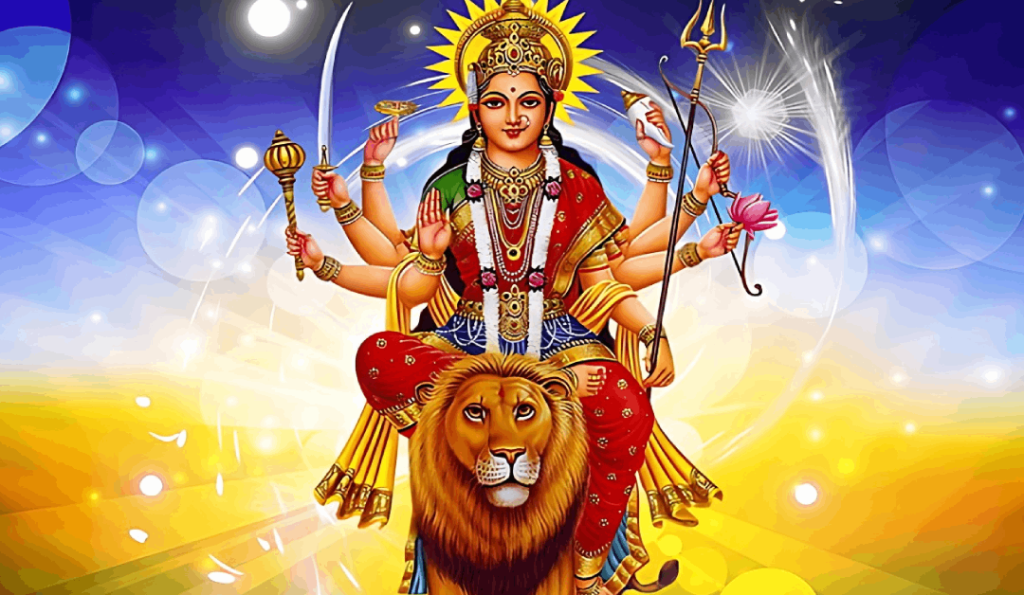The Origins of Navratri
Navratri, which literally translates to “nine nights” in Sanskrit, is rooted in ancient Hindu scriptures and mythology. According to Hindu tradition, Navratri commemorates the victory of Goddess Durga over the demon, Mahishasura, symbolizing the triumph of good over evil. It is believed that during these nine nights, Goddess Durga manifested herself in nine different forms, known as Navadurga, each representing unique qualities and attributes.
The Significance of the Nine Nights of Durga
The nine nights of Navratri hold deep spiritual significance, with each night dedicated to worshipping a specific form of Goddess Durga. These nine forms are revered for their divine attributes and symbolize various aspects of creation, preservation, and destruction. From the fierce warrior Goddess Durga to the nurturing and compassionate Goddess Lakshmi, each manifestation embodies the cosmic energy that permeates the universe. The first three nights of Navratri are dedicated to Goddess Durga in her form as Mahakali, representing the power to destroy negative forces and obstacles. The next three nights honor Goddess Lakshmi, who symbolizes prosperity, abundance, and spiritual wealth. Finally, the last three nights are dedicated to Goddess Saraswati, the embodiment of knowledge, wisdom, and creativity.
Relevance for Hindus
Navratri holds immense relevance for Hindus as it symbolizes the eternal battle between good and evil and the ultimate victory of righteousness. It is a time for introspection, purification, and spiritual rejuvenation, as devotees seek blessings from the divine mother to overcome obstacles and attain inner peace. Navratri also fosters a sense of community and togetherness, as families and communities come together to participate in rituals, prayers, and festivities.
Furthermore, Navratri serves as a cultural celebration of the rich diversity and heritage of India, showcasing vibrant dance forms such as Garba and Dandiya Raas. These traditional dances, accompanied by rhythmic music and colorful attire, reflect the joyous spirit of the festival and bring people together in a spirit of unity and harmony. Navratri stands as a testament to the enduring faith, devotion, and cultural legacy of Hindus around the world. Through its celebration of the nine nights of Durga, Navratri inspires individuals to embrace the divine qualities of courage, compassion, and wisdom in their lives. As we immerse ourselves in the festivities of Navratri, let us reflect on the eternal message of hope, resilience, and spiritual transformation that this auspicious festival imparts. May the blessings of Goddess Durga fill our hearts with joy, prosperity, and divine grace. Happy Navratri!

